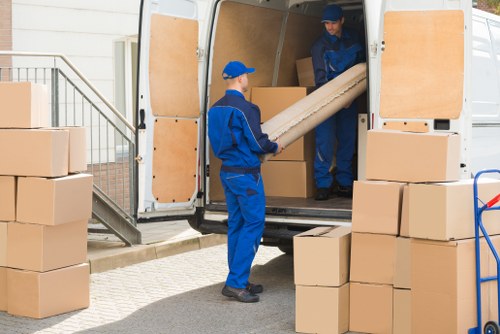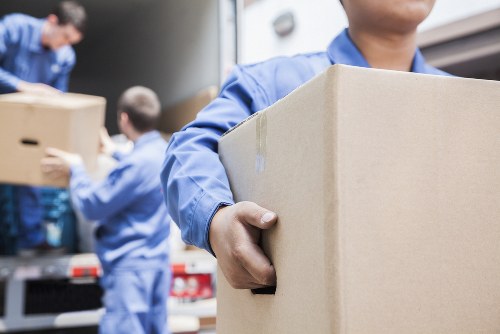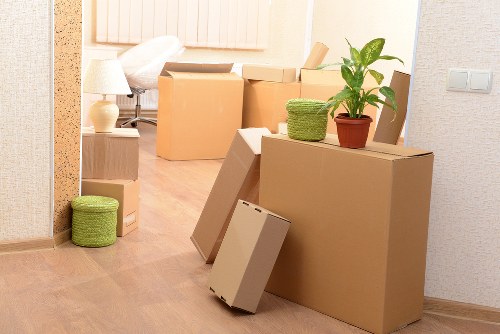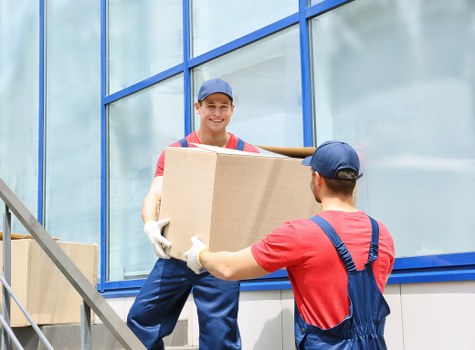Council Rubbish Collection Beaconsfield

Managing rubbish collection is a crucial service provided by the Beaconsfield Council, ensuring the town remains clean, hygienic, and environmentally friendly. Proper rubbish collection not only enhances the aesthetic appeal of Beaconsfield but also promotes public health and sustainability.
The Council offers a comprehensive rubbish collection service, catering to regular household waste, recycling, and bulky items. Understanding the schedule, guidelines, and available resources can help residents make the most of these services.
Beaconsfield Council is committed to reducing landfill waste through effective recycling programs and encouraging residents to participate actively. By adhering to the Council's rubbish collection policies, the community can contribute to a cleaner and greener environment.
Rubbish Collection Schedule

The Beaconsfield Council provides a structured rubbish collection schedule to keep the town tidy. Regular collections are typically held once a week, with specific days allocated for different types of waste.
Residents can find their specific collection day by visiting the Council's official website or contacting the local council office. It's essential to adhere to the designated schedule to ensure efficient waste management.
In addition to regular collections, the Council may offer special collection days for bulky items or hazardous waste. These services are usually announced in advance, allowing residents to prepare and dispose of large items responsibly.
Recycling Programs

Recycling is a cornerstone of Beaconsfield Council's waste management strategy. The Council encourages residents to separate recyclable materials such as paper, plastics, glass, and metals from their regular waste.
Recyclable items should be placed in designated bins provided by the Council. Clear labeling and proper sorting help improve the efficiency of the recycling process and reduce contamination of recyclable materials.
In addition to household recycling, the Council organizes community recycling events and provides resources to educate residents about the benefits of recycling and how to participate effectively.
Bulky Waste Collection

Handling bulky waste can be challenging for residents. Beaconsfield Council offers a bulky waste collection service to assist households in disposing of large items such as furniture, appliances, and other non-regular waste.
Residents can book a bulky waste collection by contacting the Council's waste management department. It's advisable to schedule these collections in advance to ensure timely and efficient service.
Proper preparation of bulky items, such as securing protruding parts and placing items in accessible locations, can facilitate a smoother collection process.
Hazardous Waste Disposal

Hazardous waste requires special handling to prevent environmental contamination and ensure public safety. Beaconsfield Council provides guidelines for the safe disposal of hazardous materials, including chemicals, batteries, and electronic waste.
Residents should never dispose of hazardous waste in regular rubbish bins. Instead, they should utilize designated collection points or participate in scheduled hazardous waste collection events organized by the Council.
Proper disposal of hazardous waste helps protect the environment and reduces the risk of accidents or health hazards associated with improper handling.
Waste Reduction Initiatives
Beaconsfield Council actively promotes waste reduction initiatives to minimize the amount of rubbish generated by the community. These initiatives include public awareness campaigns, educational programs, and incentives for reducing waste.
Residents are encouraged to adopt sustainable practices such as composting, reducing single-use plastics, and choosing reusable products. These small changes can collectively make a significant impact on waste reduction.
The Council also collaborates with local businesses and organizations to implement waste reduction strategies, fostering a community-wide effort towards sustainability.
Benefits of Proper Rubbish Collection
Effective rubbish collection offers numerous benefits to the Beaconsfield community. It helps maintain a clean and pleasant living environment, enhances public health by reducing the spread of diseases, and supports environmental conservation efforts.
Proper waste management also contributes to economic savings by minimizing the costs associated with landfill use and environmental remediation. Additionally, recycling programs create job opportunities and foster a circular economy.
By participating in the Council's rubbish collection services, residents play a vital role in sustaining the town's cleanliness and environmental health.
Local Recycling Centers
Beaconsfield Council operates several recycling centers across the town, providing residents with convenient locations to dispose of recyclable materials and bulky waste. These centers are equipped with facilities to process various types of waste efficiently.
Each recycling center has specific guidelines for the types of materials accepted and the proper manner of disposal. Residents should familiarize themselves with these guidelines to ensure their waste is processed correctly.
Recycling centers also offer educational resources and support services to help residents understand the importance of recycling and how to contribute effectively.
Penalties for Non-Compliance
Failing to comply with Beaconsfield Council's rubbish collection policies can result in penalties. These penalties are in place to encourage adherence to waste management guidelines and maintain the town's cleanliness.
Common violations include placing non-recyclable items in recycling bins, missing collection days, and improper disposal of hazardous or bulky waste. The Council may issue fines or take enforcement actions against repeat offenders.
To avoid penalties, residents should stay informed about the Council's rubbish collection rules, follow the designated schedules, and use the appropriate bins for different types of waste.
Community Engagement and Support
Community engagement is essential for the success of Beaconsfield Council's rubbish collection services. The Council actively involves residents in waste management initiatives through workshops, surveys, and feedback sessions.
Residents are encouraged to provide input on waste management policies and suggest improvements. This collaborative approach ensures that the services meet the community's needs and address specific concerns.
Volunteer programs and community clean-up events are also organized to foster a sense of responsibility and collective effort towards maintaining a clean environment.
Recycling Tips for Residents
Implementing effective recycling practices can significantly enhance the efficiency of rubbish collection services. Beaconsfield Council provides the following tips to help residents recycle more effectively:
- Sort Your Waste: Separate recyclable items from general waste based on the Council's guidelines.
- Clean Recyclables: Rinse containers to remove food residue, which can contaminate recyclable materials.
- Compress and Flatten: Reduce the volume of recyclable items by flattening cardboard boxes and compressing plastics.
- Avoid Contamination: Do not mix non-recyclable materials with recyclables to prevent contamination.
- Use Appropriate Bins: Ensure recyclables are placed in the correct bins provided by the Council.
By following these tips, residents can improve the effectiveness of recycling programs and contribute to the overall success of rubbish collection services.
Environmental Impact
Proper rubbish collection and recycling practices have a significant positive impact on the environment. They help reduce the amount of waste sent to landfills, conserve natural resources, and lower greenhouse gas emissions.
Recycling materials such as paper, glass, and metals reduces the need for raw material extraction, minimizing habitat destruction and energy consumption. Additionally, effective waste management helps prevent pollution of air, water, and soil.
By participating in the Council's rubbish collection services, residents actively contribute to environmental preservation and the fight against climate change.
Innovations in Waste Management
Beaconsfield Council continuously seeks innovative solutions to improve waste management services. This includes adopting new technologies, implementing smart waste collection systems, and exploring sustainable waste processing methods.
Smart bins equipped with sensors can monitor waste levels and optimize collection schedules, reducing operational costs and improving efficiency. Additionally, advancements in recycling technologies enable the processing of a wider range of materials, enhancing the effectiveness of recycling programs.
The Council also explores partnerships with local businesses and research institutions to develop eco-friendly waste management practices and promote sustainability within the community.
10-15 Closest Areas to Beaconsfield
Beaconsfield is surrounded by several areas that benefit from the Council's rubbish collection services. These nearby areas include:
- Eastcote: Located just east of Beaconsfield, Eastcote offers easy access to recycling centers and regular rubbish collection.
- Princes Risborough: A short distance north, this area enjoys timely waste pickups and efficient waste management programs.
- Nenagh: Southwest of Beaconsfield, Nenagh benefits from the Council's comprehensive rubbish collection and recycling initiatives.
- Chipping Norton: West of Beaconsfield, Chipping Norton residents have access to bulky waste collection services.
- Gerrards Cross: Northeast, Gerrards Cross utilizes advanced recycling facilities provided by the Council.
- Haddenham: Located nearby, Haddenham participates in community clean-up events and waste reduction programs.
- Little Kimble: South of Beaconsfield, Little Kimble benefits from specialized hazardous waste disposal services.
- Amersham: East, Amersham residents enjoy efficient rubbish collection schedules and recycling support.
- Marlow: Northwest, Marlow benefits from the Council's innovative waste management solutions.
- High Wycombe: Northeast, High Wycombe utilizes smart waste collection systems to enhance efficiency.
- Chorleywood: Southeast, Chorleywood residents have access to designated recycling centers and waste reduction resources.
- Little Chalfont: Southwest, Little Chalfont participates in volunteer waste management programs.
- Split Rock: North, Split Rock benefits from the Council's educational recycling initiatives.
- Taplow: East, Taplow residents engage in community recycling events and support sustainability efforts.
- Chalfont St Giles: South, Chalfont St Giles enjoys comprehensive waste management services and community support.
Each of these areas contributes to the overall success of Beaconsfield's rubbish collection and waste management efforts, fostering a collaborative environment focused on cleanliness and sustainability.
Conclusion
Beaconsfield Council's rubbish collection services play a vital role in maintaining the town's cleanliness, promoting environmental sustainability, and enhancing the quality of life for its residents. By understanding the collection schedules, participating in recycling programs, and adhering to waste management guidelines, residents can contribute to a healthier and more sustainable community.
Engagement and cooperation between the Council and the community are essential for the continued success of these initiatives. Together, Beaconsfield and its surrounding areas can achieve significant progress in waste reduction and environmental preservation.
Embracing sustainable practices and supporting the Council's waste management efforts ensure a cleaner, greener future for Beaconsfield and its residents.
Frequently Asked Questions
- When is the rubbish collection day in Beaconsfield?
Rubbish collection days in Beaconsfield vary by area. Residents should check the Council's official website or contact the local council office to find their specific collection day.
- How can I recycle electronics in Beaconsfield?
Electronics can be recycled by taking them to designated recycling centers or participating in special collection events organized by the Council. It's important to remove any personal data before recycling electronic devices.
- What items are considered bulky waste?
Bulky waste includes large items such as furniture, appliances, mattresses, and other non-standard waste items that do not fit into regular rubbish bins.
- Are there any fees for bulky waste collection?
Some bulky waste collections may be free of charge, while others may incur a fee. It's best to check with the Beaconsfield Council for specific details and booking procedures.
- What should I do with hazardous waste?
Hazardous waste should not be disposed of in regular rubbish bins. Instead, utilize designated collection points or participate in hazardous waste collection events organized by the Council to ensure safe and proper disposal.